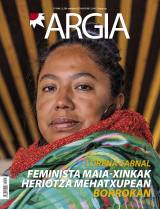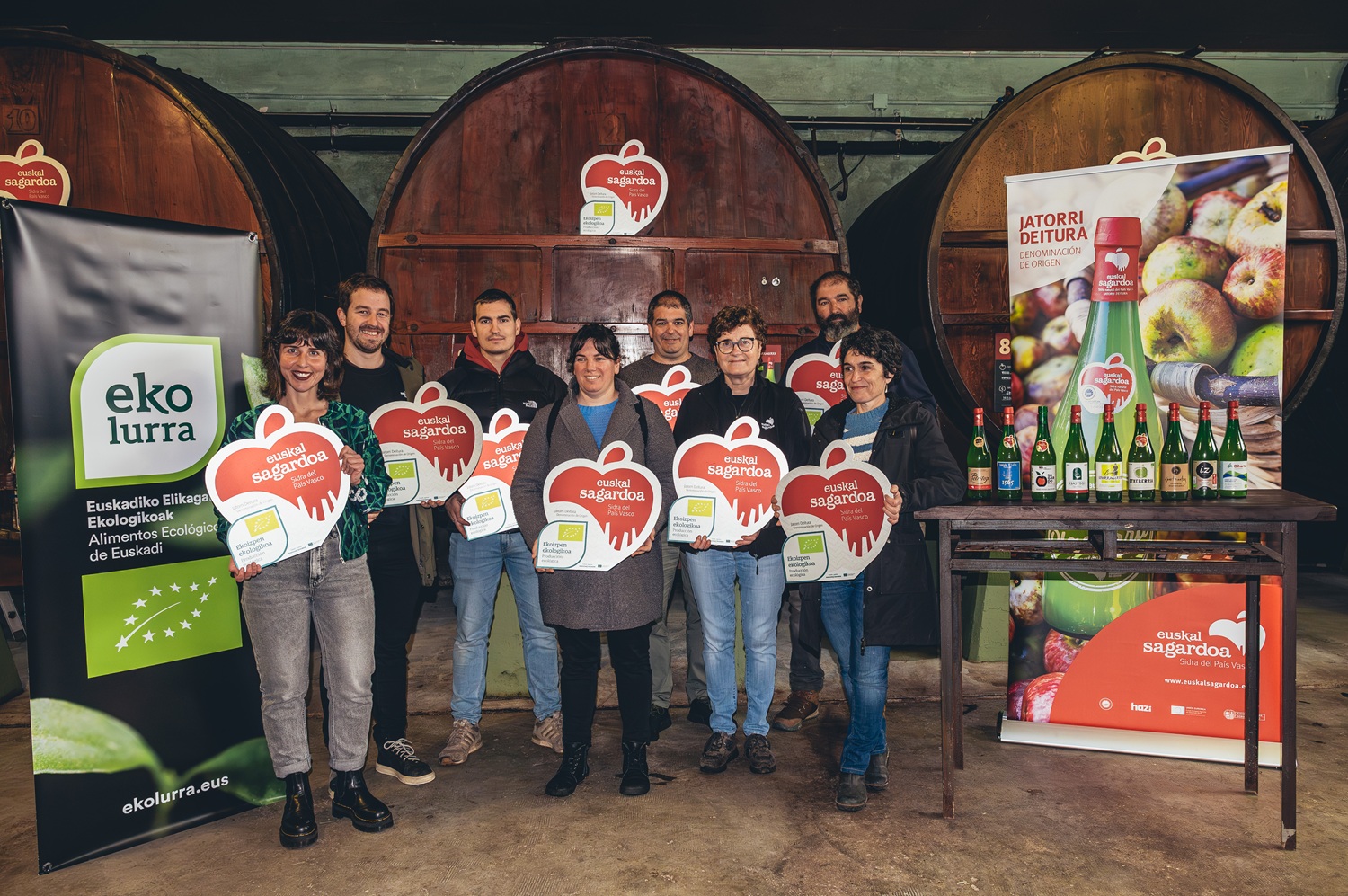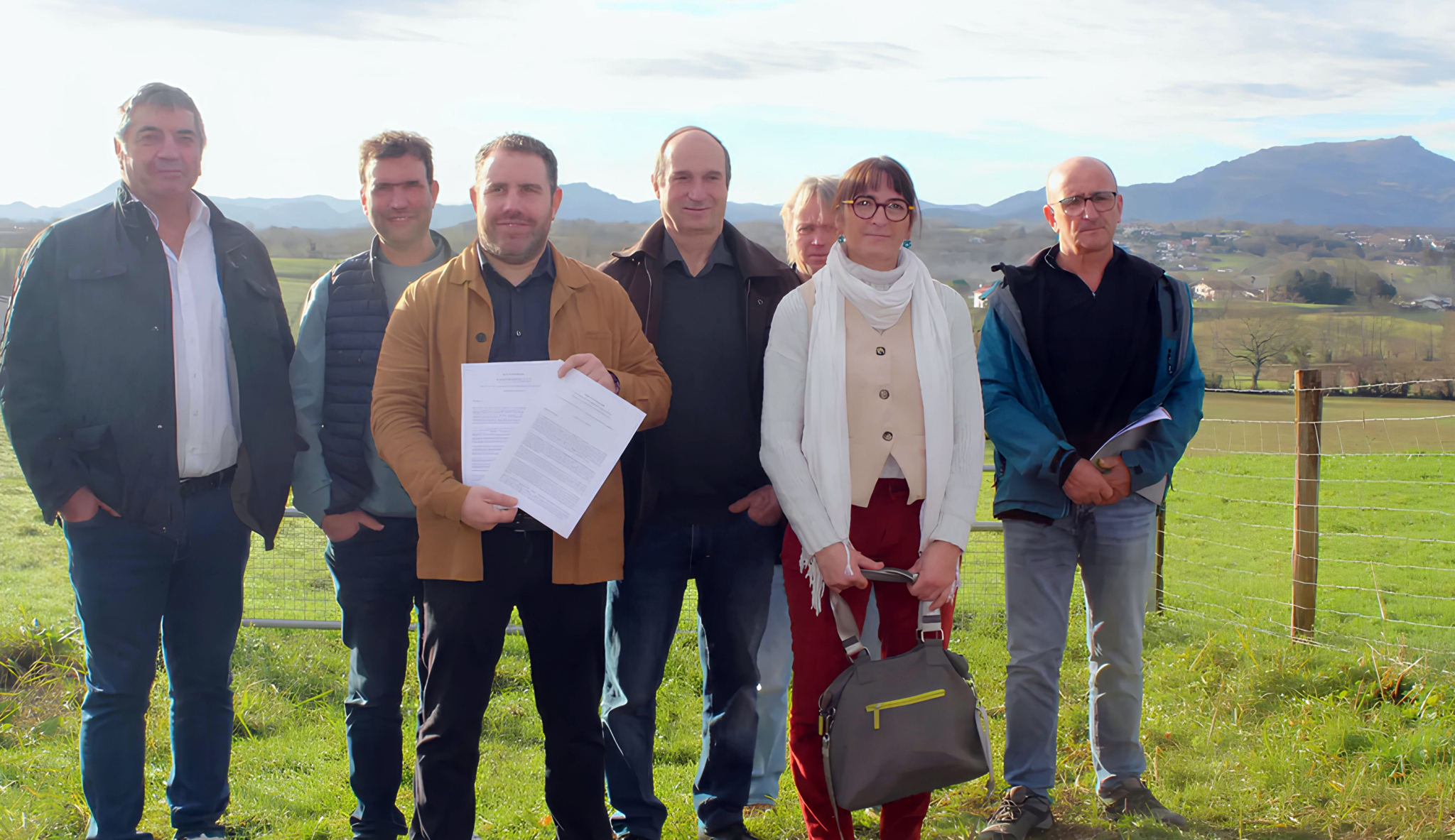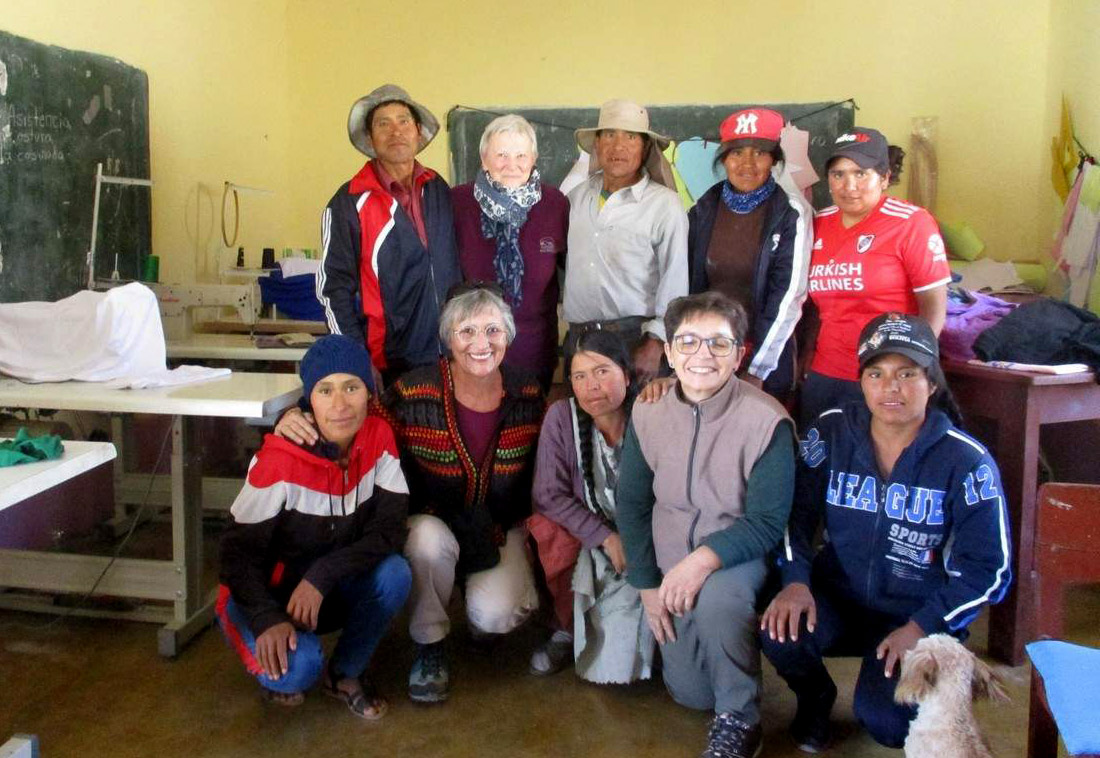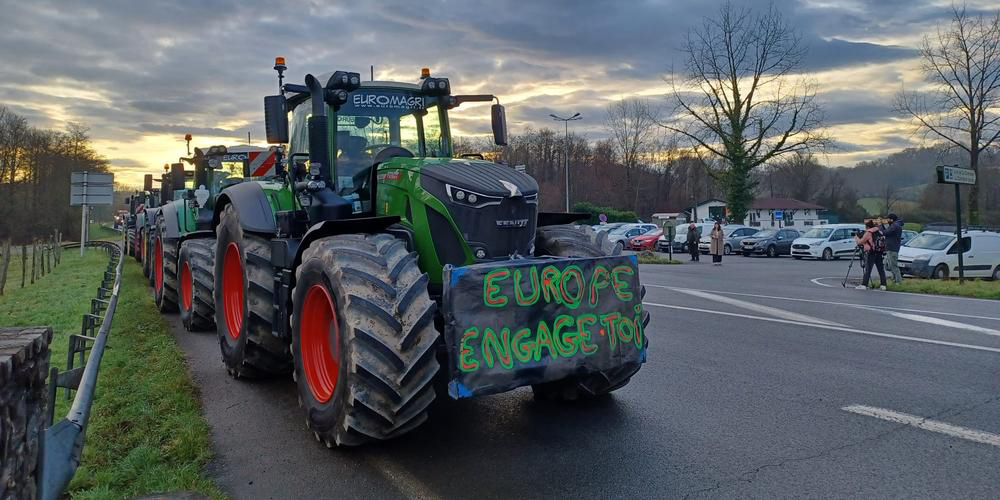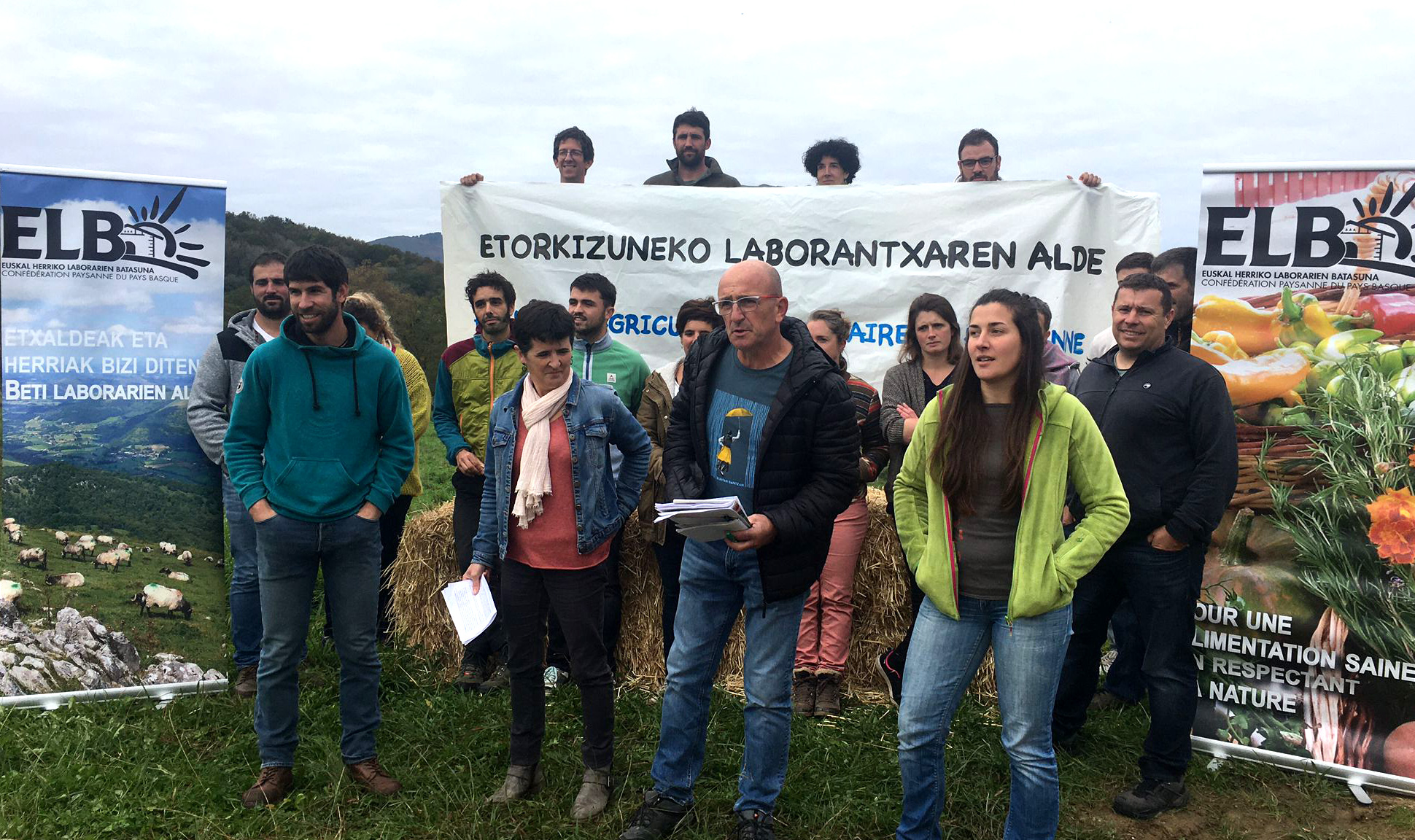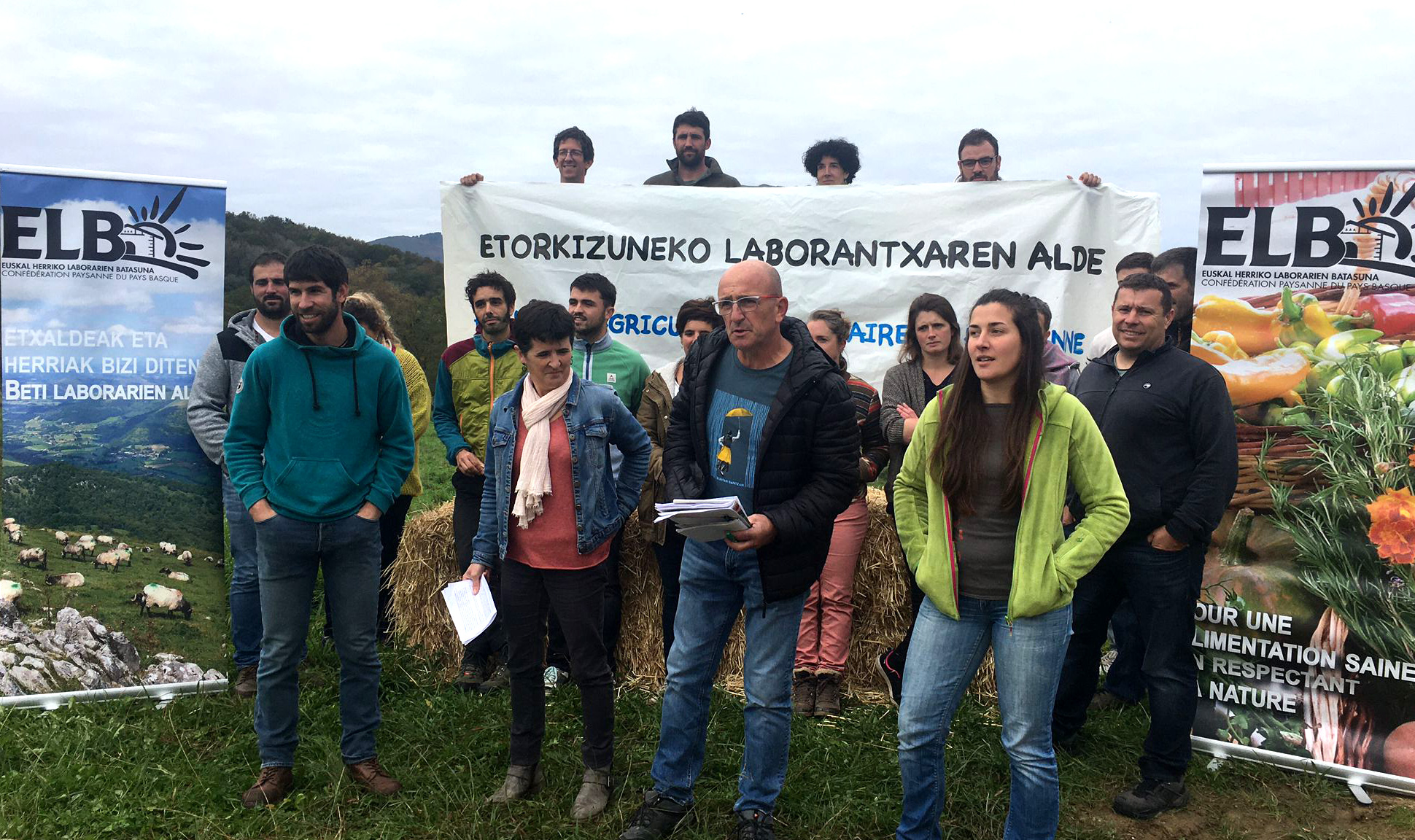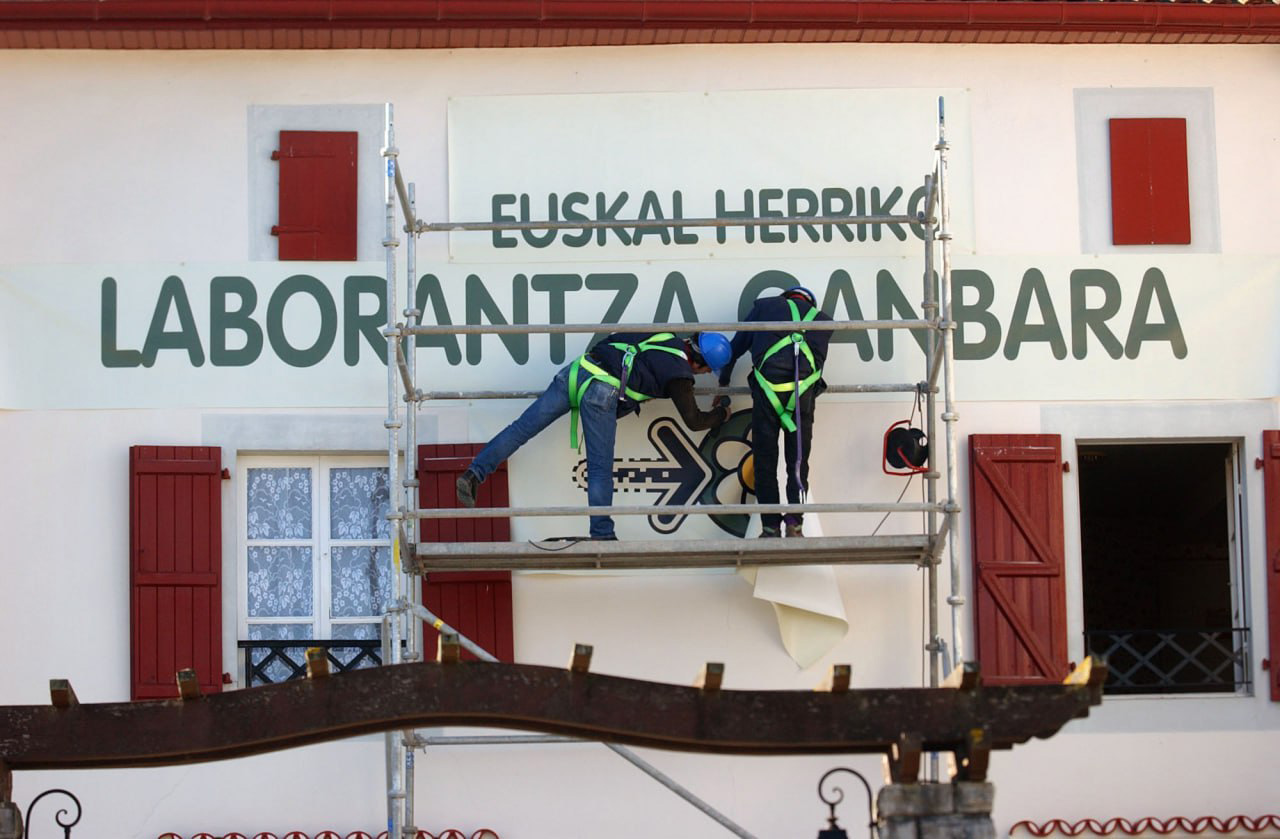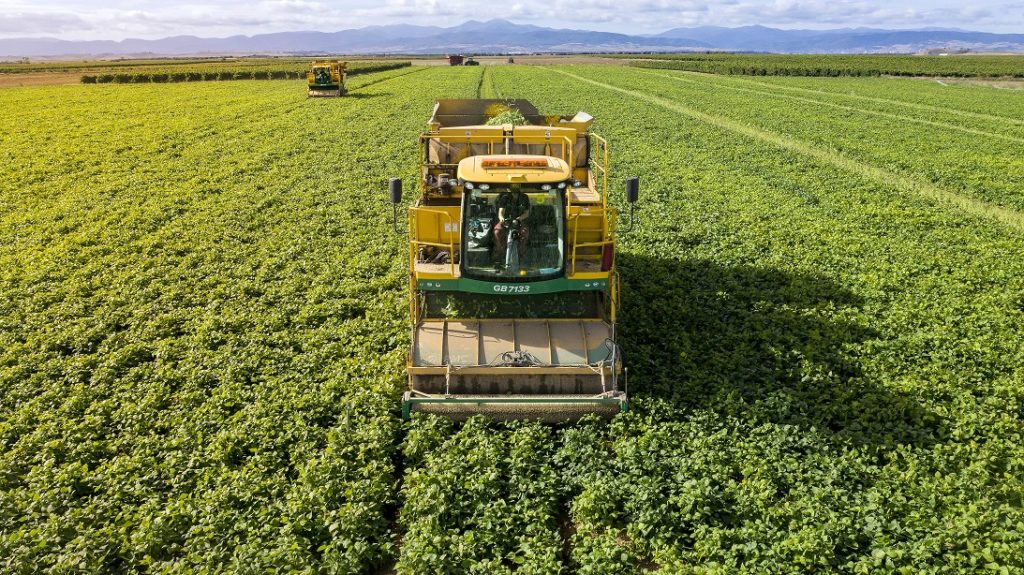"I won't die sad or victimized."
- We don't use the same terminologies, because we start from different conceptions of the world. But starting to understand one another, with a little time, one can easily see how the paths and paths of the feminist Lorena Cabnal cross. For example, we've talked about the body: our free territory, our battlefield.
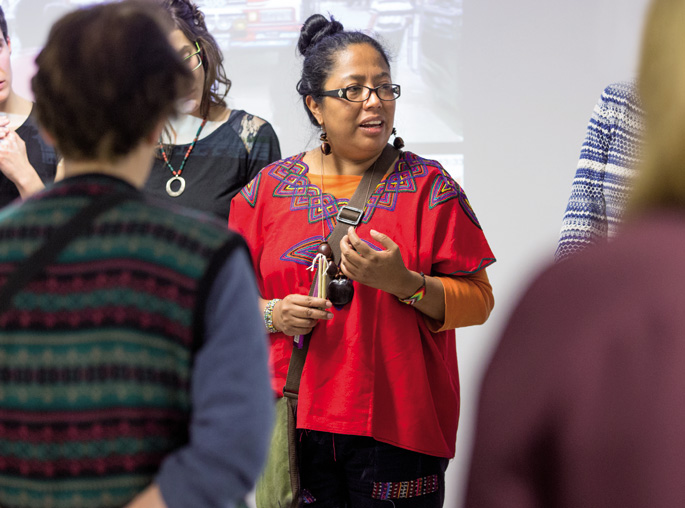
Aktibista eta feminista komunitarioa da. Santa María Xalapango Emakume Indigenen Elkartea sortu zuen: meatzaritza multinazionalak eta emakume indigenen aurkako zapalkuntza patriarkala borrokatzen dituzte.
You think of yourself as a community feminist. What does it consist of?
What we call community feminism today has characteristics of various feminist currents, but it has not come anywhere, we have done it ourselves; I am referring to the case of Guatemala. For me, it is a political, cosmogonic and spiritual proposal, based on indigenous women.
Our goal was not to build a stream of feminism. We were angry and we started asking questions. Have we always lived so badly for indigenous women? Why are we the most impoverished? Why can't we get to health? Why do I work so hard, why are we so tired, why are we so old? We looked at indigenous women from other peoples and saw that they were also very bad. Therefore, deep reflections began with impoverished bodies to interpret our oppression.
How did you start meeting and working?
One of the first slogans of community feminism is the defense of our first territory, of the body. In the indigenous communities they raped a lot of girls and we were afraid. In 2005, we began to denounce sexual violence, saying that we had to defend ourselves, as our territory. For us, the body is a space that means life.
We started work underground around 2003. We realized that in the Xalapan community there were only women gathering in five places, so to speak, with the permission of the community: bringing water, bringing wood, making bread, going to the orchard and to the church. So how could we justify the union of women? It occurred to us to make flowers to María Andrea Serrano and to me to take them to the graves of the dead. At that time, we didn't know how to make flowers, but we got together a lot of women, about 370. While the flowers were being made, the issues that we really wanted to work on arose, for example, why we had so many children – women under 50 had an average of eleven children – or because of the issue of sexual violence, which is very natural.
The defence of territory plays a fundamental role in your proposal. Why?
Because it seems to us that the feminist proposals that exist today in the world are going to be permanent if they also take the earth as a vital space for life. If we make a complete epistemic construction of oppressions on the oppression and liberation of bodies, but we do not link it to the liberation of the earth, which is the space in which they live, every feminist current will have a great void. We see it as a commitment to life. In addition, the patriarchal system has dominated nature for a long time, not just human bodies.
Have they acted against mining interests?
In fact, the struggle on the mountain was not for mining, but for the interests of oil extraction. Around 2007 there were rumours that there were a large number of foreigners living in the vicinity of the communities. The lands of Xalapango cannot be sold as they are communal property. However, we began to suspect, and that same year we published a statement denouncing the oil interests of foreigners.
And then?
We had knowledge of the popular consultations. Consultations began in western Guatemala, not because it was in the interest of public officials to ask the citizens, of course, but because the citizens realized that the government had given a lot of land without their consent. In 2009, we set out on this model and started organizing it, asking for reports on land concessions to mayors, deputies ...
The story is very long, but to sum it up: we did incredible political work, we didn't want to give us information, and then we started to mobilize. We collected over 20,000 signatures, claiming that we gave up all kinds of mining. We will not accept mining, even if they sell it to us with the most beautiful words (development and others). According to the people of origin, development is not part of the network of life, since development, within the neoliberal patriarchal model, generates wealth for some and poverty for others and destroys natural goods.
What is the concept of living well?
To begin with, rather than a way of living well, there are ways of living well, because one of the principles of the cosmogony of peoples is diversity. The peoples of origin recognize that there are different ways of living.
The world plunged into a global crisis of civilization, and then the Westerners looked at us, how the hell have these people survived? And they started talking about living well, but there's no standardized way. Each people has its own, it designates it in its language.
How do you interpret it?
In our case, as community feminists, within the good living we want to recover some elements of the people of origin that contribute to the network of life, such as the memory of the ancestors, the way of measuring time, orality... But there are also indigenous esencialisms that we're not interested in. For example, there is brutal sexual violence against women in indigenous communities. How is that going to be to live well? There are also hegemonies built, for example, our communities are totally heterosexual. That breaks the fabric of life, we believe in diversity. If good living doesn't take into account the diversity of bodies -- I think it's suspicious.
It has to be difficult to face betrayal.
In many indigenous spaces we have already been told that we do not think like indigenous women and that this has happened because we have been with many foreigners and feminists: for example, indigenous people do not distinguish women and men, our reference has always been “the people”. In our opinion, it is very interesting to talk about the people and see how the subdivision of women's bodies has been hidden within this category. Because in organized indigenous communities, what are the words and actions of men always like to the detriment of women? What are most spiritual guides like men? Do women have no spiritual autonomy?
It has been and continues to be a very complex process. Of course, like all processes, grief, loss and conflict. The situation of Community feminists is difficult, stigmatise us and persecute us.
“What the boats brought – among other things, religion, marriage, the concept of virginity – joined the patriarchal structures here, and that’s why we’re so screwed today.”
According to some, the patriarchy came with the colonialists.
Yes, it seems that there are people who want to go to the situation 524 years ago and say that then all the evils of the people of origin began, and that before that everything was peace and love. Well, no. No, and I say categorically no. Of course, I do not remove any affection from the colony, which has historically been misogynistic and violent against bodies and the earth. But for me, it's really hard to get me 524 years ago.
All of this I can say because I am an indigenous woman and therefore I have an epistemic authority to question my indigenous world. I, as an indigenous woman, through orality, through the oppression that I have suffered in my body, can approach the territory of meaning prior to colonization and feel how indigenous societies were formed at that time. By then there were already wars between big peoples, and for me those wars were sexually separated, because men were gudaris, but women ... Where were the women?
In your opinion, there was a “patriarchal pairing”.
There are many documents of the beginnings of colonization, written by indigenous men, and after reading them we proposed the theory of conciliation. The documents show how many indigenous men, the Presidents and the Women, were donated massively to the settlers. Why? These women suffered sexual violence and were based on a patriarchal structure in a specific context. Who attacks bodies, who decides the fate of those bodies -- it's a complex structure.
What the boats brought, like religion, marriage, the concept of virginity, joined the patriarchal structures here, and that's why we're so screwed today. Colonialism was a fertile land for racism, for land expropriation, for creating a new form of domination ... A new economic model is born based on all this.
We're pulling another thread now. They claim that healing is a political process.
Healing is necessary, as long as we do it politically, with a feminist intention and helps us to recover the memory of our ancestors: how they complemented themselves, without resorting to the imposed Western system. We recognize that there are several ways of healing.
Why is it so fundamental?
Where are the historical and structural burdens of oppression embodied? Well, in the bodies. In this body I live all the somatizations of the patriarchal system and psychological violence also has a hole in my body. Where will racism, misogyny, lesbophobia take root, if not in this very body? The body is a battlefield for the patriarchal system, because it is painful to say so, but with these bodies we maintain the systems of oppression. Nature does not recreate patriarchy, we reproduce it.
Therefore, healing is a personal, political and conscious path, to see where oppression comes from and to reclaim the political meaning of life: yes, I was born bothered, and I am aware of those subordinations that I have accumulated in my body, but, on the other hand, the political power to liberate is also in this body, and although I live under this system, leave me! I will not die sad or victimized, I give it up, I eat it and I say no. As my body is forming, I have the energy to keep fighting patriarchy, racism and capitalism.
You accompany yourself in healing processes. How do they do it?
With nature and other bodies coming off, of course, because we are not interested in the bodies that are going to impose hegemony and power on us. We also mention the energy of eroticism. Patriarchy has reduced the strength of eroticism with the box of heterosexuality, but there are nature, bodies of all kinds, time cycles ... However, it's not just about massages. That has been caught up by the market and is therefore depoliticised.
We, on the one hand, have a purpose of love, of revitalization with nature and bodies. On the other hand, we believe in the principle of reciprocity: the people who accompany us in healing processes are not at the top of healing, but, when you compete, I train myself and vice versa.
Before I finish, I should like to ask you about the murder of Berta Cáceres, who was her friend.
For community feminists, today’s struggles can not only be made political, feminist and social, but a spiritual struggle must also be made.
The tragedy of Berta, the territorial femicide, has happened, because we women have put our bodies there, in the front line, in attack. That is a great thing and the system has responded, with terrible misogyny, has exercised its maximum power over bodies and has sent us a clear message: women have a private space and return to it. Berta was a potent, rebellious, brave and beautiful woman; if she's been doing that, being a public person, what won't they do to us in the mountains? That is the message they have sent us.
Has it been a way to heal the meeting in Honduras to say goodbye to Berta?
Yes. It is fundamental not to fall victim to victimization and to continue working. We have met in Honduras, threatened and stigmatized women, with complaints in the Ibero-American Tribunal, with international protection at risk... We met there and responded to the message of the death of capitalism and patriarchy: the more oppression, the more organization.
Gasteiztik iritsi da Lorena Cabnal Donostiako Kaxilda liburu-dendara, zuzenean autobus-geltokitik. Gustura geratu ei da esandakoekin, baina badu pena bat, argazkiak direla-eta: lehenago jakin izan balu, arropa tradizionalak soinean etorriko litzateke.
Kriztian Borda hautetsi ohia eta Lurzaindia elkarteko kideak sare sozialetan zabaldu duen bideo baten harira piztu da ika-mika. Arbonan laborantza lurrak "arriskuan" daudela salatu du Bordak, eta jakinarazi du Arbonako Herriko Etxeak bere kirol zelaia Baionako promotore... [+]
Txotx denboraldian eredu ekologikoan ekoiztutako Euskal Sagardoaren eskaintza izango da hainbat sagardotegitan, eta hura bistaratzeko, Jatorri Deiturak eta ENEEK-Ekolurrak kupeletan paratzeko euskarria aurkeztu dute.
Lurraren alde borrokan dabilen orok begi onez hartu du Frantziako Legebiltzarrak laborantza lurren babesteko lege-proposamenaren alde bozkatu izana. Peio Dufau diputatu abertzaleak aurkezturiko testua da, eta politikoa eta sentimentala juntaturik, hemizikloan Arbonako okupazioa,... [+]
203 diputatu alde eta hiru aurka agertu dira martxoaren 11 gauean egin bozketan. Higiezinen agentziak haserre agertu dira, eta bi salaketa aurkeztu ditu FAIN Frantziako Higiezinen Federazio Nazionalak Europako Batzordean. Bata, lege-proposamenari esker botere gehiago jasoko... [+]
Laborantzaren Orientazio Legea pasa den astean ofizialki onartu du Frantziako Parlamentuak. Ostegunean Senatutik pasa da azken aldikoz. Iazko laborarien mobilizazioen ondotik, aldarrikapenei erantzuteko xedea du lege horrek. Aldiz, ingurumenaren aldeko elkarteek azkarki salatzen... [+]
Zubiak eraiki Xiberoa eta Boliviaren artean. Badu jadanik 16 urte Boliviaren aldeko elkartea sortu zela Xiberoan. Azken urteetan, La Paz hiriko El Alto auzoko eskola bat, emazteen etxe baten sortzea, dendarien dinamikak edota tokiko irrati bat sustengatu dituzte.
Datorren astean Departamenduko Laborantza Ganbarako hauteskundeak ospatuko dira Ipar Euskal Herrian. Frantzia mailako FDSEA eta CR sindikatuez gain, ELB Euskal Herriko Laborarien Batasuna aurkezten da, "euskal laborarien defentsa" bermatzeko.
Euskal Herriko Laborantza Ganbera elkartearen hogei urteak ospatu zituzten asteburuan Ainhize-Monjolosen. 2005eko urtarrilaren 15 hartan sortu zuten Lapurdi, Baxenabarre eta Zuberoako laborantzaren garapena –hori bai, iraunkorra eta herrikoia izan nahi duena–... [+]
Departamenduko Laborantza Ganbarako hauteskundeen kanpaina abiatu da. Urtarrilaren 14an bozetara aurkezten diren hiru sindikatuen ordezkariekin bi oreneko eztabaida sakona antolatu zuten Euskal Hedabideek, osoki euskaraz.









